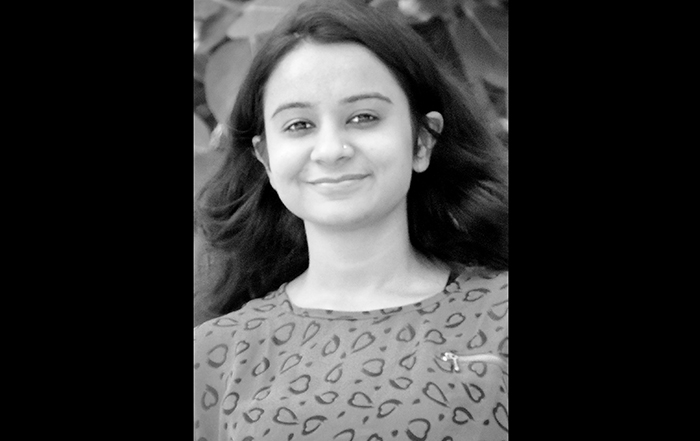We’re taking time over the following weeks to get to know the members of the GSA’s Early Career Scientist Committees. Join us every week to learn more about our early career scientist advocates.

Ruchi Jhonsa
Career Development Subcommittee
National Centre for Biological Sciences, Bangalore, India
Max Planck Institute of Molecular Cell Biology and Genetics, Dresden, Germany
What is your research interest?
Cell polarity is the distribution of lipids, proteins, and other biomolecules within the cell, and its proper establishment is fundamental to many aspects of cell function. Pathways that are required for establishing and maintaining polar distribution of biomolecules are often essential, and defects in these processes can cause adverse defects in organs. Cells rely on the integration of signaling cascades, acquisition of specialized trafficking circuits, and the establishment of a unique cellular architecture for polarization.
I use Drosophila photoreceptors as a model to understand the intricate mechanism of polarity maintenance through lipid signaling. Phospholipids are differentially distributed in cells, and perturbation in lipid signaling has been shown to affect the polarity of cells. My work will hopefully provide insights into how differential distribution of lipids contributes to maintenance of cell polarity, as well as identifying the molecular players involved in the process of establishing polarity.
As a PhD-trained scientist, you have many career options. What career paths interest you the most?
Research in science and technology is critical to addressing issues of health care. As a scientist, I want to impact society by turning scientific findings into products that can improve human health. During my graduate career, I enjoyed working in an academic environment; however, I found myself wanting to see my research translated into a product that could help society. In the future, I would like to work in industry, where I’ll be able to focus on moving research into the marketplace and clinic. I want to apply the knowledge and scientific thinking I learned during my academic career to address challenging questions of human disease.
In addition to your research, how else do you want to advance the scientific enterprise?
I have realized that there is a lot of enthusiasm among undergraduate and graduate students for pursuing research; however, I feel that students don’t have many opportunities to reach out to working scientists. As a graduate student, I needed connections who could guide me through career options. To address this, I want to make a virtual community platform that allows students to interact with professionals in their chosen field and to talk to them about their career paths.
Ideally, this platform would include scientists from all over the world who are pursuing different career options. People could get their questions answered by experienced professionals. These questions could be about career options in academia or industry across the globe. Also, students could get advice on building their CVs and cover letters before sending them out to potential employers. This would be particularly useful for people who want to pursue career options far away from their home or where they trained.
As a leader within the Genetics Society of America, what do you hope to accomplish?
As a member of Career Development Subcommittee, I look forward to working on the Decoding Life series. I hope to interact with people from different walks of life and to increase my understanding of different career paths. I will use this opportunity to learn from the experiences of people who have explored diverse career paths and have stabilized themselves within a particular career option. These interviews will be useful for researchers across the globe that are looking for answers about different career options.
Previous Leadership Experience
- Mentor, Advanced Lecture Series 2018—National Centre for Biological Sciences
- Secretary, GENESIS Society—Indian Institute of Science
- Mentor, Note Book Drive Initiative—Indian Institute of Science
- Organizer, Open Science Day—Indian Institute of Science
Contact
Twitter: @JhonsaRuchi































